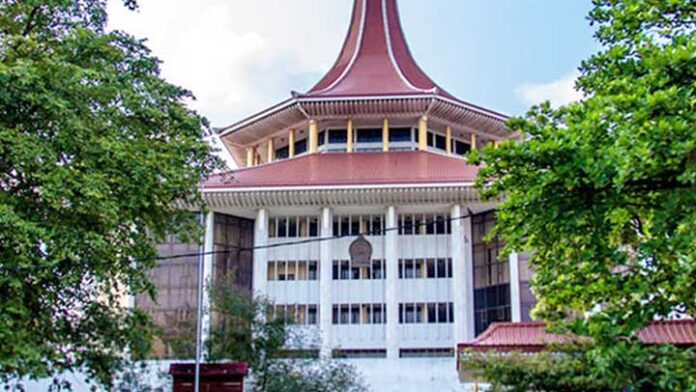[ad_1]
ECONOMYNEXT — Sri Lanka’s Supreme Court has ruled that the Prevention of Terrorism (De-radicalisation from holding violent extremist religious ideology) Regulations No. 1 of 2021 violated Articles 10, 12(1) & 13 of the constitution and were null and void.
The Centre for Policy Alternatives (CPA) challenged the validity of the guidelines in April 2021, and a stay order preventing the application of the rehabilitation scheme was issued in January 2022, the CPA said in a statement on Monday November 13.
The scheme under the guidelines would have amounted to pre-trial punishment, and would have permitted the abuse of power, allowing the state to police the freedom of thought and conscience of the people, the CPA said.
The regulations were published in the Extraordinary Gazette No. 2218/68 dated Friday, March 12, 2021.
In its petition filed in April 2021, the CPA and its Executive Director Paikiasothy Saravanamuttu said that while they recognised the need to integrate a process of rehabilitation into the criminal justice system, the impugned regulations violate several of Sri Lanka’s constitutionally guaranteed fundamental rights, of the petitioners as well as of the general public.
The petitioners argued that the regulations served to enable the denial of due process, due judicial protection and a fair trial, and result in an arbitrary deprivation of liberty, entailing infringement and/or imminent infringement of the fundamental rights guaranteed under Articles 12(1), 13(2), 13(3), 13(4) and 13(5) of the constitution.
“They also argue that the impugned regulations, and the broad language contained therein, entail provisions that may result in degrading treatment of persons and deny persons the safeguards provided by law in cases of detention and imprisonment and thus and otherwise entail infringement and/or imminent infringement of Articles 10, 11, 14(1)(a), 14(1)(c), 14(1)(e) and 14(1)(f) of the constitution,” the CPA said in a statement at the time.
The petitioners also maintained that the impugned regulations are ultra vires as they have not been promulgated by the proper authority and thus and otherwise entail infringement of Article 12(1) of the constitution. They further argued that the impugned regulations had the effect of conferring and/or transferring discretion required to be exercised (as may be duly conferred upon it by law) by the judicial arm of government, to the executive arm of government in a manner inconsistent with Articles 3 and 4 of the constitution and thus and otherwise entail infringement of Article 12(1) of the constitution.
The petitioners prayed for inter alia declarations that the impugned regulations violate the fundamental rights guaranteed by the constitution, and that they are null and void and of no avail in law. (Colombo/Nov13/2023)
[ad_2]
Source link


